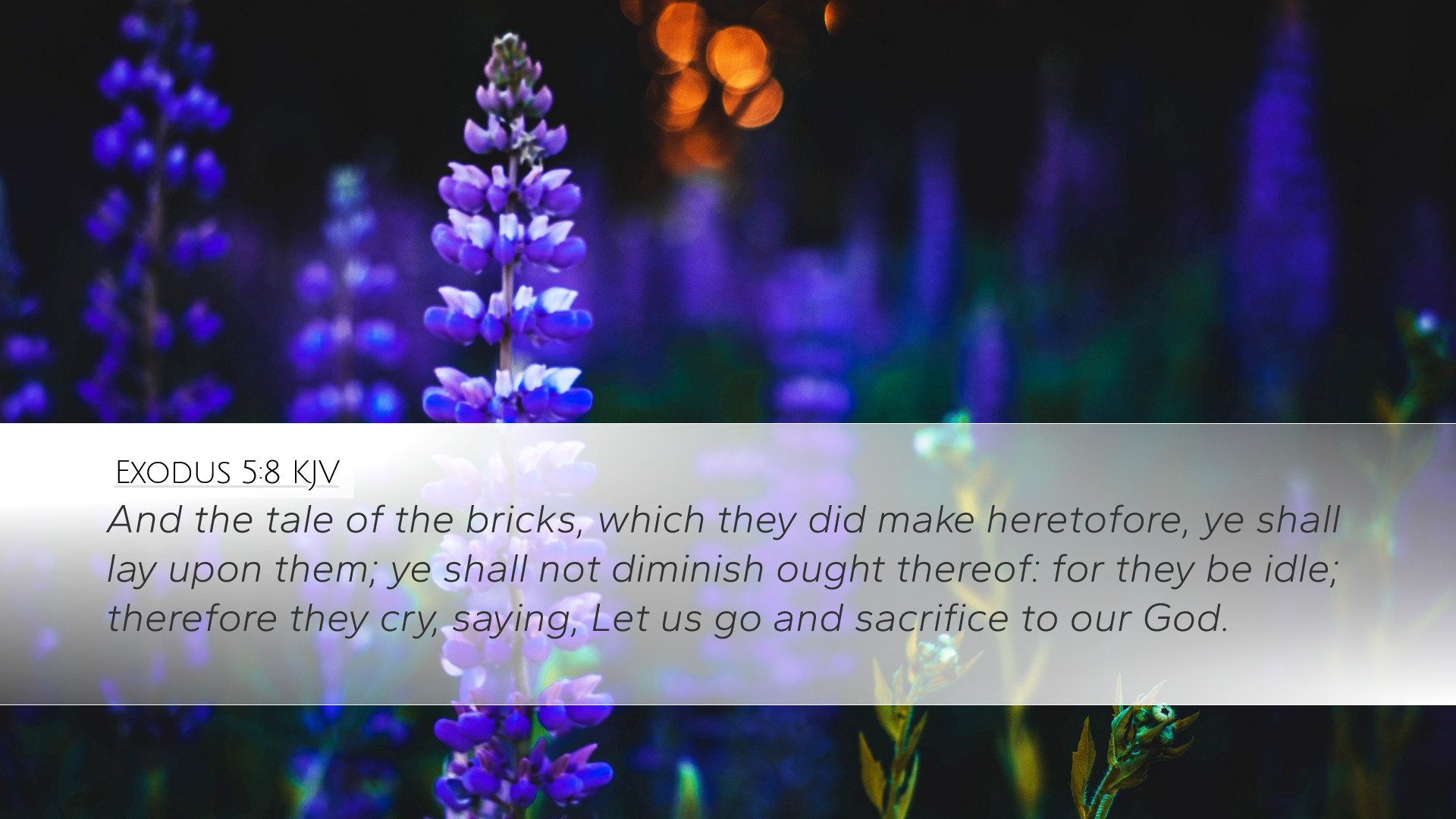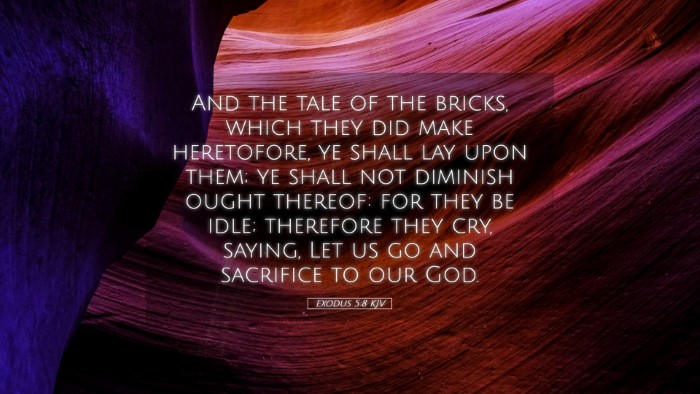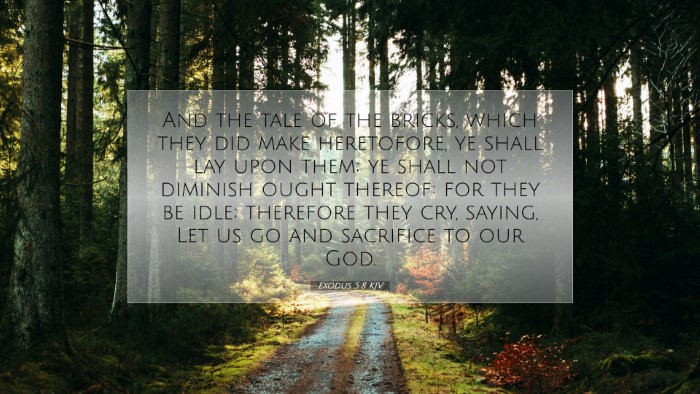Commentary on Exodus 5:8
Exodus 5:8 reads: "And you shall lay on them the number of bricks which they made before; you shall not diminish it, for they are idle. Therefore they cry out, saying, 'Let us go and sacrifice to our God.'" This verse emerges within the narrative of Israel's oppression in Egypt, where the Israelites are tasked with the labor-intensive job of brick-making.
Contextual Analysis
In understanding Exodus 5:8, we must consider the broader context of the Israelites' situation in Egypt. The continuous oppression on the part of Pharaoh and the Egyptian taskmasters had escalated the burden upon God's people, applying severe pressure to reinforce their subservience.
Historical Context
Matthew Henry notes the historical backdrop of this event, emphasizing the shift in Pharaoh's approach. Initially accommodating, Pharaoh's policies transformed as he perceived the Israelites' increasing numbers. The imposition of an arduous quota on brick-making symbolized the economic and personal exploitation faced by a people yearning for freedom.
Theological Implications
Albert Barnes underscores the theological implications of this verse. The demand for the same output of bricks without diminishing the quantity illustrates the harshness of Pharaoh’s authority and the cruelty of oppression. It reflects the broader struggle between divine calling and earthly authority, as the Israelites' plea to worship was met with more burdensome demands.
Exegesis of Key Phrases
To appreciate the statement's weight, we must unpack the phrases within this verse:
-
"You shall lay on them the number of bricks"
This phrase signifies the unyielding expectations placed upon the Israelites. The taskmasters were to ensure not just the completion of the work, but strict adherence to quotas, no matter the human cost.
-
"Which they made before"
Henry points out that this emphasizes the memory of oppression. The reference to past achievements under pressure serves to intensify the comparison with their current plight. It contrasts their former productivity with their burden of hardship, illustrating the weight of unmet expectations.
-
"You shall not diminish it, for they are idle."
This declaration reflects Pharaoh's refusal to accept any excuses for non-compliance. It also showcases the pharaoh's view of the Israelites as mere labor resources, ignoring their humanity and needs.
-
"Therefore they cry out, saying, 'Let us go and sacrifice to our God.'
This plea highlights the deep-seated yearning of the Israelites to worship and reconnect with their God. Adam Clarke notes that their labor is juxtaposed with their spiritual needs; their cries for liberation do not stem from idleness but from a divine calling to fulfill sacred duties.
The Response of Pharaoh
The continuation of Pharaoh's hardened response in opposition to the cries for freedom illustrates an enduring theme in Exodus—the struggle between God's will and human authority. Pharaoh’s retaliation highlights the tension experienced by a people desiring systemic and spiritual liberation.
The Symbolism of Brick Making
The act of brick making itself becomes symbolic of human labor under oppression. Matthew Henry suggests that bricks are a metaphor for the foundational sins and burdens placed upon the Israelites, reminder of bondage that stifled their identity and purpose.
Application for Today
For pastors, theologians, and students, the insights gained from Exodus 5:8 serve as a poignant reminder of the ongoing struggles of marginalized communities seeking justice and freedom. The lesson extends beyond the historical narrative to contemporary applications, urging believers to engage with societal injustices actively.
Reflections on Spiritual Liberation
This verse challenges followers of Christ to consider where they draw the line between earthly duties and spiritual commitments. It calls for a reflection on what oppressive 'bricks' we bear and whether we are vocal in our cries for liberation.
Conclusion
In summary, Exodus 5:8 is more than a mere historical account; it embodies a testament to the struggle of faith against oppression. By combining insights from various public domain commentaries, we arrive at a richer understanding of the text’s significance both in its original context and in modern reflections on faith, labor, and divine calling.


